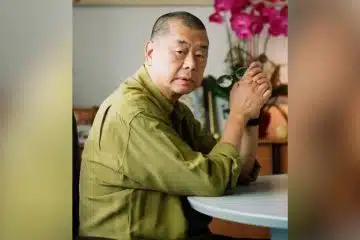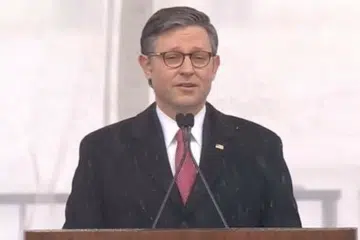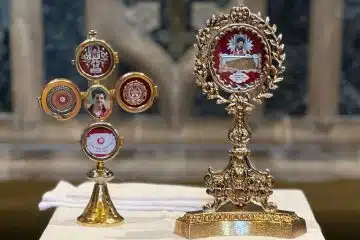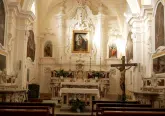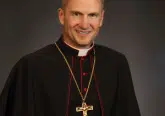Once ‘papabile,’ bishop-maker Cardinal Marc Ouellet retires
Vatican City, Apr 24, 2023 / 10:30 am
Last week, Cardinal Marc Ouellet handed over the reins of the Vatican’s bishop office to Bishop Robert Francis Prevost.
Ouellet, 78, has led the Dicastery for Bishops — formerly called the Congregation for Bishops — since 2010.
The transition marks the end of a long and varied career for Ouellet, whose time as a priest, religious, archbishop, and cardinal has led him from Canada to Italy to Colombia and, finally, to nearly 13 years full time at the Vatican.
But the Quebecois cardinal will not be slowing down in retirement. “I have no problem with my future,” he teased during an exclusive interview with CNA in February.
Over the last several years, Ouellet spearheaded the international symposium “Towards a Fundamental Theology of Priesthood.”
The latest gathering, co-organized by the Centre for Research and Anthropology of Vocations, was at the Vatican in February.
“The Catholic Church, I would say, is very clerical. It’s very grounded on the ordained ministry; that’s at the center of the attention: the bishops, the priest,” Ouellet said. “But we lack awareness of the priesthood of the baptized.”
“That was exactly the purpose of this symposium,” he said, “to see [laypeople and priests] participate in the unique priesthood of Christ — the baptized and the ordained ministry — to see the relationship between both.”
“This is, for me, a contribution that has to be added to the process of synodality,” he added.
The result of the conferences was two books the cardinal hopes will serve as a reference for the formation of priests, laypeople, and religious.
The first volume of “A Fundamental Theology of the Priesthood,” edited by Ouellet, is expected to be published in English on May 9.
Since March, Ouellet has kept a busy travel schedule, jetting to different European and U.S. cities to promote the books. He is planning to be in Washington, D.C., in May.
Life and career
Ouellet grew up in Québec, Canada, in the tiny town of La Motte. He was the third of eight children.
An avid hockey player as a teen, he decided to pursue the priesthood after breaking his leg in an outdoor ice rink at age 17.
Ouellet told The Canadian Press in 2005 that the break, which happened when his skate got stuck in a crack in the ice, meant missing out on a season of playing.
“I started to pray and to read a little more spiritual things because I was unable to play. It was decisive for my vocation,” he said.
Even as a young priest, Ouellet continued to play hockey, joining a men’s league while vicar at Saint-Sauveur Church in Val-d’Or, his first assignment after being ordained in May 1968.
Shortly afterward he headed to Bogotá, Colombia, where he taught at the major seminary, run by the Society of the Priests of Saint Sulpice, which he joined in 1972.
The priest would spend much of the next 17 years teaching at different seminaries in Colombia — in between a stint at the Grand Séminaire de Montréal and studying in Rome — first for a license in philosophy and later for a doctorate in dogmatic theology.
“The continent where the gap, the divide, between rich and poor is greatest is Latin America,” Ouellet said.
His firsthand experience of Colombia later proved invaluable when in 2010 he was appointed president of the Vatican’s Pontifical Commission for Latin America.
In 1990, Ouellet returned to Canada, where he became rector of the Grand Séminaire de Montréal, then rector of St. Joseph’s Seminary in Edmonton.
Ouellet was a consultor to two Vatican congregations in the ‘90s, and in 2001 he was appointed secretary of the Pontifical Council for Promoting Christian Unity.
From 1996 to 2002 he taught at the John Paul II Institute for the Study of Marriage and the Family in Rome.
He was named archbishop of Québec in late 2002 by Pope John Paul II, who also made him a cardinal less than a year later.
Ouellet led the Archdiocese of Québec, with its more than 1 million Catholics, until 2010, when he was brought back to the Vatican as prefect of the Congregation for Bishops.
Throughout his ecclesiastical career, the cardinal has known four popes and worked closely with three.
“I have a debt, enormous debt of gratitude, come with all these popes, starting with St. Paul VI, who ordained me a priest in May ‘68,” Ouellet said.
He also recalled Pope John Paul II’s request for him to teach at Rome’s John Paul II Institute 26 years ago.
“That was a good relationship. I admired his energy to evangelize and his testimony in suffering. He was a great man of offering his life and being at the foot of the cross with the Virgin Mary,” he said. “I admired his last years, which were very heavy as a burden. But he gave a great witness to the Church.”
Ouellet called Pope Benedict XVI, instead, a “doctor of the Church.”
“I think we have a legacy of doctrine and reflection, and of a theologian, also, that will last for centuries” in Benedict, the cardinal said. “Ratzinger is a name that will last [for] centuries, for his contribution to theology and also to the Church.”
Benedict, he continued, “did not have the charism of Francis — the pastoral contact with people and to give enthusiasm to people — that was not his charism. The lesson that I take from this experience is that the Church is very rich in resources. And the Petrine ministry in particular is very adaptable.”
“Yeah, we had such different popes… And that’s in the continuity of the work of the Holy Spirit in history. He brings us the right man at the right moment. And that doesn’t mean that they are infallible in everything they do — all with limits and also mistakes — but they are men guided by the Holy Spirit. I’ve seen that in Pope Francis.”
Controversy
Ouellet himself was considered “papabile” — or a potential choice for the papacy — during the 2005 and 2013 conclaves.
And both during his time as an archbishop and as a cardinal, he has not been afraid to wade into Church debates.
When the Vatican’s 2019 Amazon Synod brought up the topic of ordaining as priests “viri probati,” meaning “proven men” who are married, Ouellet published a book defending the practice of priestly celibacy.
Explaining why he decided to write a book on the topic of celibacy, Ouellet said the subject deserves “serious treatment in the Church.”
“And because,” he continued, “I think it is an extraordinary gift of God to the Church, the gift of celibacy for priests and the gift of celibacy, also, in religious life and consecrated life. It’s so important for evangelization. Why? Because it is a witness to the identity of Jesus: Who is Jesus?”
He went on to explain that priestly celibacy is more than just a question of discipline: “We have to think of celibacy … from the position and the ministry of the bishop.”
“And all bishops, from the beginning, from the apostles, were chosen, and Jesus asked them to leave everything, even family, and to follow him,” Ouellet said. “And they did that, why? Because they acknowledged who this man was. He was not just a bigger prophet, he was the Son of God, the Son of God and the Risen One, and so he can require this condition to follow him as also a witness of love, of availability for the mission. I think this is a great gift to the Catholic Church; it has been kept along the centuries, and I hope it will stay.”
Speaking about the traits he looks for in a bishop, Ouellet told EWTN News the leader of a local Church “has to not only have a solid doctrine but to have a very vivid, existential faith. That means he is able to discern the presence of the Spirit in people, to discern charism and to bring people together.”
He should also inspire trust in his people and share the Word of God, he added. “That’s what the world needs: a man of communion; that is, not a sort of hero or a cultural warrior. No, a man of the Gospel and of the people, a closeness to people, and a sense of a heart, a fatherly heart.”
Last year, Ouellet was accused of sexual assault by a woman identified pseudonymously as “F.” in a class-action civil suit filed by multiple plaintiffs against the Archdiocese of Québec. The accusation dated to the cardinal’s time as archbishop of Québec.
The cardinal, who has strenuously denied the accusation, filed a defamation lawsuit in Québec courts in December 2022.
“I have never been guilty of these reprehensible behaviors,” the cardinal said in a Dec. 13 statement accompanying the lawsuit.
“I am taking legal action for defamation before the courts of Québec,” he said, “in order to prove the falsity of the allegations made against me and to restore my reputation and honor.”
The Vatican conducted a preliminary investigation into the accusation in August 2022. Pope Francis determined that there was not sufficient evidence to begin a canonical investigation against Ouellet for sexual assault.



